When Claire Coutinho picked her A-levels in 2002, she received a phone call from her grandmother in India. ‘She could see that I’d not picked medical subjects,’ Coutinho says: she’d gone for maths, history of art and English – a glitch in the matrix for a family that tends to choose medical school. ‘She told me that she may not last very long and it was her final wish that I reconsider.’ Coutinho stuck to plan A; her grandmother lived for another ten years. Last month, at 38, she became one of the youngest secretaries of state in British history.
We meet in her soon-to-be-vacated office with a rooftop view of Westminster Abbey and a whole floor of advisers and aides. Not so long ago, Coutinho was one of those advisers. She had begun her career in finance but, looking at the career train tracks ahead, she jumped off. She tried catering, the charity sector and other jobs, moved to politics and ended up as special adviser to Rishi Sunak. Elected in 2019, she’s now seen as his closest cabinet colleague.
She was made Energy Secretary with a particular purpose: to change the course of Tory environment policy. Last week, two net-zero commitments were dropped: delaying the 2030 petrol and diesel car ban to 2035 and slowing down the phasing-out of gas boilers. The agenda, she insists, is not to bury net zero but to save it.
‘I’ve worked with Rishi for a long time and I’ve talked to him about the environment and climate change,’ she says. ‘We are actually safeguarding the future of climate change policy. What you see in Europe is that lots of people are losing faith, they see it as something that politicians are doing to them. Clobbering them in their personal finances for a cause that they don’t completely understand because they see their emissions as much lower than other countries.’
In political terms, Coutinho sees herself – and the Prime Minister – as climate moderates, who want policies that will have public support. Both fear that carrying on with unworkable targets, or obliging households to pay between £5,000 and £15,000 for heat pumps, would see support for green policy collapse altogether. Recent government polling found that just 7 per cent of people in the UK think net zero will be good for their finances in the near term.
‘The biggest threat to the cause isn’t the climate change deniers, it’s the zealots who are turning people off,’ she says. ‘Look at what’s happening in Europe: you can see the AfD, a climate-sceptic party in Germany, at its highest point in decades. In the Netherlands, you have got the farmers’ party and in France just yesterday Macron said he is not going to ban boilers.’ She sees her agenda as part of a mainstream pushback against climate hardliners – ensuring that the UK ‘won’t see some of the revolts that we’ve seen in the rest of Europe’.
This has made her a target for the ire of eco groups and corporates who invested in line with the original timetable. ‘I think it’s important to get the balance right,’ she says.
What about the levy Gary Smith, GMB union chief, calls the energy poll tax – a £170 surcharge on all energy bills, irrespective of wealth? ‘We want to protect poorer families. We do, through things like the welfare system. But there are only certain mechanisms where you can raise money which we then spend, for example, on renewables. Ultimately, the whole way we have got to do it is progress, make sure we have got enough clean power but also protect families. With the two policies that we changed, there was no way round it for all those families. They would have to spend thousands of pounds – whether on their boilers or a car. There was no mechanism for us to help them with that.’
Nissan has said it will stick with the 2030 target for phasing out new petrol cars regardless. Has industry stopped listening to the government? ‘They will be doing it for commercial reasons,’ she says. ‘This is mainly about the consumers, giving them the choice to make their own decisions. That’s really what we are focused on because all of these policies should be by choice, there shouldn’t be a coercion.’
In which case, why not scrap the target? Surely delaying the ban by five years is just delaying the ‘coercion’? ‘At that point the price will have fallen a lot more. So what we are trying to do is give people enough certainty so that you put in the infrastructure, you put in the investment. But not put the costs on families when they can ill afford it.’
Coutinho sees this job as a fusion of her main interests: the environment, finance and social justice. On paper, she seems a Sunak mini-me: Indian heritage, elite private school, Oxford, the City, an accelerated path to high political office. But her background is different. Her parents, who met at medical school in India, both came to Britain to work for the NHS: they immigrated, she says, with a net worth of £200, hoping their children could have a better life. ‘It’s a well trodden, self-starter immigrant tale. But for them, they really wanted to have the benefits for their children of the education system that we’ve got here, the job opportunities and that’s exactly what they did.’
What Michael Howard once called the ‘British dream’ was certainly realised with Coutinho – who was raised a Catholic – winning a full scholarship at 11 to a private day school in Dulwich, without which her parents would have found it difficult to send her there. From there she went on to study maths and philosophy at Oxford and tried investment banking. ‘I always get written up as a banker but that was only really the early part of my career,’ she says. At one point she co-founded a company that laid on dinners themed from literary novels, serving dishes mentioned in the text. She’d often cook for 60 people.
She tried taking her culinary skills to the next level with an appearance on Nigella Lawson’s now defunct TV show The Taste. ‘I got kicked off in episode two. I love cooking and I still cook a lot for people, just not on national TV,’ she says. ‘I’m a feeder.’
After that she moved to Iain Duncan Smith’s Centre for Social Justice. ‘The majority of my career has been working in social justice: visiting families, talking to communities who are struggling. That’s what I’d done for the most part before I became a special adviser,’ she says.
‘The other thing that happened to me quite early on is that we had some challenges in our family. Lots of people do.’ She won’t elaborate on what precisely happened, but adds: ‘I had different families who took me in and really cared for me. They gave me this really strong sense of belonging and I think that’s what shaped my politics. It was when I was about 16 that I started working with different disadvantaged families: I did literacy schemes. When I went to university, I did respite breaks for children who were looked after.’ As an MP, she created a charity that focuses on loneliness in her constituency.
Her time at investment bank Merrill Lynch shaped her politics in one regard: it made her Eurosceptic. ‘When I was in finance, my desk covered Greece and I saw their financial crises,’ she recalls. ‘All the things the EU did with Greece in terms of debt restructuring which, to me, didn’t look like it worked very well for Greece in terms of the loss of sovereignty.’ She wanted to become an MP after serving as an adviser in the Whips’ Office and watching the sheer disarray after the Brexit vote. ‘It was all so dysfunctional,’ she says. ‘I wanted to come in and help deliver it from the inside.’
Having advised Sunak when he was chief secretary to the Treasury, she became his parliamentary aide once elected. But her fast elevation from a junior minister in education to Secretary of State took many aback. ‘I think I was very in tune with the nation in that yes, I was surprised,’ she says. ‘But I was also very honoured.’ She was welcomed initially – including by her opposite number, Ed Miliband (‘he sent me a very nice congratulatory text’). But she’s lost support on her own side after the net zero pivot – Boris Johnson, Alok Sharma, Zac Goldsmith and others have complained. Her colleague Kemi Badenoch has said critics like Goldsmith are too wealthy to understand. Coutinho won’t be drawn into individuals. ‘I always seek to persuade,’ she says of the conversations going on privately.
The new Energy Secretary has yet to invest in an electric car herself – ‘I drive a second-hand Ford Fiesta’ – and does not own a heat pump, though she did previously live ‘in an off gas grid home’. In her department, there are plenty of challenges coming up the track. The most immediate is this winter: will the government step in again to help with energy bills?
‘The energy price guarantee lasts until next year so that is in place but the way it worked last year, because bills were so high, is that the government spent £40 billion paying roughly half of people’s energy bills,’ she says. ‘Now obviously we can’t do that every time but we can do targeted support.’ Would something like a social tariff allow for more targeted support? ‘The Chancellor’s committed to look at that,’ she responds. ‘I think the idea is that if you are going to support people, how do you do it in as best a targeted way as possible?’
Her other job is to support the beleaguered Prime Minister, whose satisfaction rating last week fell to a new low. The two appear to have formed a bond. Sunak is known for his lowbrow cultural tastes. He’s a devotee of Netflix’s Emily in Paris and the work of Jilly Cooper. ‘I was more of a Dick Francis girl,’ says Coutinho. Does he ever give her cultural recommendations? ‘I like crime documentaries so I don’t think it would be a good mesh.’
How would she describe her boss? ‘Everybody knows that he’s smart,’ she says. ‘But he is also really kind, he genuinely cares about doing the right thing. Look at different points in time, whether it’s him being honest about inflation – a position that he lost the leadership election over – or fighting that third lockdown. Or now, taking the stand that we’ve taken on net zero. I think he is brave, willing to stand up and say things where others might not.’
But can she see the overall problem: that the mess Sunak says he is trying to clean up was made by Tories? How can voters be persuaded that what Britain needs is five more years of Tory government? Why would anyone vote Conservative now?
‘When I did all that work with families and communities around the country,’ she replies, ‘the thing that really changed their lives was education and opportunity. That is exactly the Conservative philosophy. It’s why I’m a Conservative. And that’s why people should believe in us.’
Got something to add? Join the discussion and comment below.
Get 10 issues for just $10
Subscribe to The Spectator Australia today for the next 10 magazine issues, plus full online access, for just $10.
You might disagree with half of it, but you’ll enjoy reading all of it. Try your first month for free, then just $2 a week for the remainder of your first year.


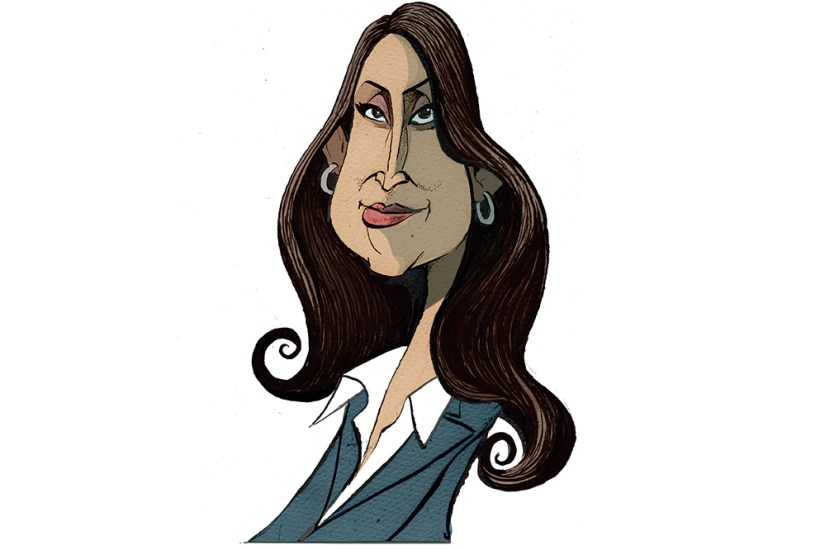
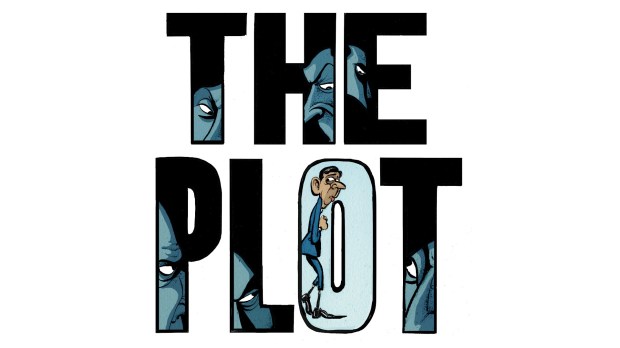
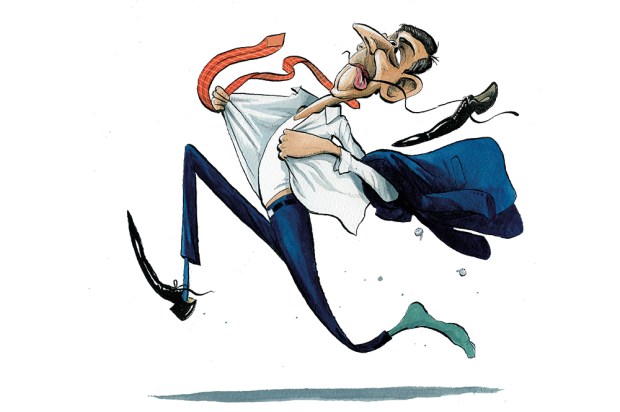
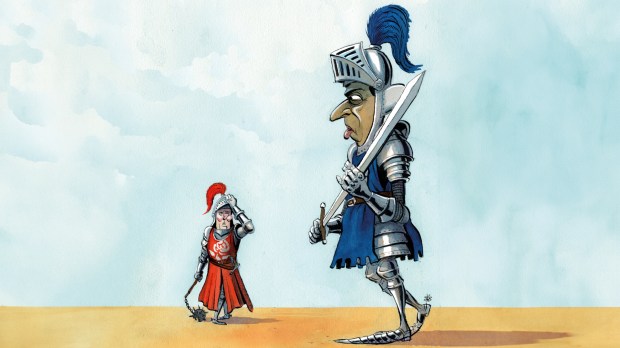
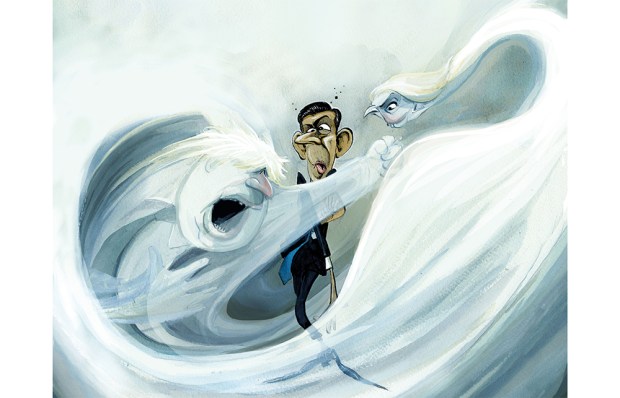
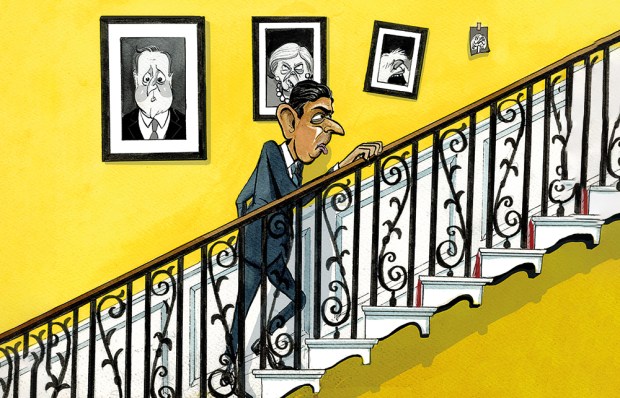
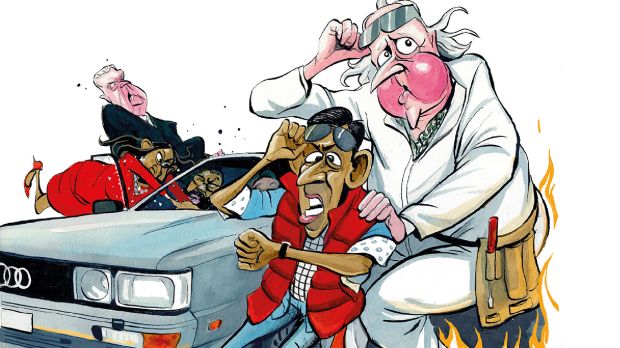






Comments
Don't miss out
Join the conversation with other Spectator Australia readers. Subscribe to leave a comment.
SUBSCRIBEAlready a subscriber? Log in